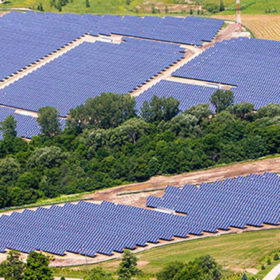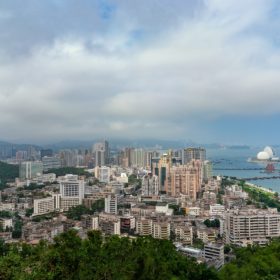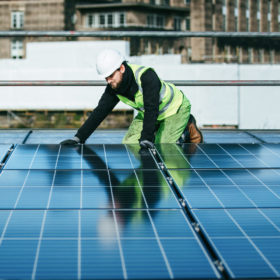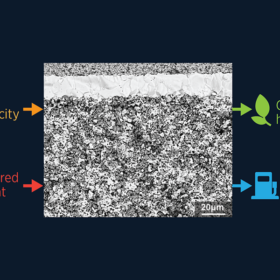Renewables and storage developers bid to offer new power in Ontario
The Canadian province needs to commission 5 GW of newly-built electricity generation capacity to cope with demand driven in part by electric vehicles and nuclear energy retirements.
The Hydrogen Stream: Guangdong targets €4.35/kg retail price by 2025
The authorities in China’s Guangdong province have released a 2022-25 plan that foresees the retail price for hydrogen dropping to less than CNY 30/kg ($4.42/kg). Germany and Canada, meanwhile, are set to strengthen their collaboration on hydrogen, and Ford has revealed plans to team up with Southern California Gas for a hydrogen fuel cell electric truck that will be on the road by 2025.
Only one PV project to compete in Quebec’s 780 MW renewables tender
The 40 MW solar park is under development by Saint-Augustin Canada Electric Inc and planned to be located in Bas Saint Laurent, with completion scheduled for October 2026. Wind and hydropower were the prevailing sources in the procurement exercise.
Vehicle-integrated photovoltaics for low-speed electric vehicles
Canadian startup Capsolar claims its flexible solar modules can be adapted to any type of low-speed electric vehicle with no extra modification and custom work. The panels have an efficiency of 21.3%.
Qcells to secure solar glass from Canada for its US manufacturing operation
Canadian Premium Sand and Hanwha sign an agreement for patterned solar glass manufactured in Manitoba.
Lithium-ion fire fears spark recall of 433,000 solar LED umbrellas in US, Canada
The US Consumer Product Safety Commission and Health Canada have issued a joint recall of patio umbrellas due to fires caused by the overheating of lithium-ion batteries.
Canadian consortium wants to deploy photovoltaic noise barriers across North America
A consortium led by building-integrated photovoltaics maker Mitrex wants to install highway noise barriers with integrated solar that have 1.2 MW of capacity per kilometer. The technology is currently in the pilot phase at government entity locations in North America.
Canadian Solar plans to ramp up production capacity
Having warned of in-house solar wafer and cell capacity as recently as the third quarter of 2021, the company has announced it will be adding even more production lines this year.
The Hydrogen Stream: Acid-treated cells produce about 200% more hydrogen
US scientists have improved the performance of intermediate-temperature electrolyzers based on protonic ceramic electrochemical cells. Germany and India have signed a hydrogen cooperation deal, while ArcelorMittal has tested the use of green hydrogen in the production of direct reduced iron at a steel plant in Canada.
Quebec publishes draft documents for 1.3 GW tender
The Canadian provincial government’s Green Economy Plan, launched in November 2020, envisages a 37.5% reduction in greenhouse gas emissions en route to net zero by mid century.










